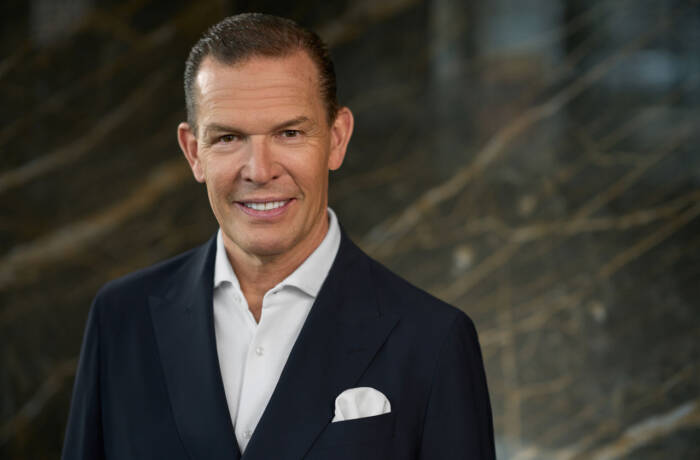Léa Seydoux, the French star who’s conquered Hollywood and is the new face of Prada Candy, speaks to Caroline Davies about childhood, perfume and Nietzsche
Serious yet joyful, sleek yet dishevelled, Léa Seydoux is an elegant enigma. The actor is one of only three women to have won a Palme d’Or, has just been announced as the next Bond girl and is also the face of Prada Candy perfumes. Following the recent launch of the third fragrance in the series, Prada Candy Florale, and ahead of her role in 2015’s dystopian love story The Lobster, alongside Colin Farrell and Rachel Weisz, Seydoux spoke to us about her journey to the silver screen.
LUX: Were you a quiet child? Was acting an obvious path?
Léa Seydoux: Absolutely! I was a quiet child, but that is precisely why I decided to be an actress. I wanted to counter my shyness. As a child, I dreamed that I would become an opera singer; I don’t think I was predestined to have a quiet life.
LUX: Do you put your past experiences into your performances?
LS: I’m convinced there are no rules to follow when becoming an actress. Every path is personal. Learning from our own story is quite logical, as we have to put a bit of our life into the character played. However, it’s not always enough. Role- playing also involves being able to imitate reality.
LUX: How has your character in the Candy adverts evolved?
LS: Candy’s evolution is linked to the evolution of the fragrance. She has always been a very colourful and original character; she’s a very impulsive young woman who does what she wants, when she wants. I think that in the first film, directed by Jean-Paul Goude, Candy was more spoilt and rebellious, but now she’s grown up a bit and is more rounded as a character. With Prada Candy Florale, there’s a greater sense of freedom, lightness and sensuality that comes across in a sophisticated manner.
LUX: You’ve said that you find it difficult to be light on screen. How do you find the lightness to play less tightly wound characters like Candy?
LS: Candy is bold and light at the same time. It’s the contradiction that I find deeply interesting. That is what I drew upon when embodying that character.
LUX: Why did you want to work with Prada on this campaign?
LS: Prada is a brand that I’m particularly fond of; I feel very close to the spirit of the House. It’s a very singular brand, and very audacious.
LUX: What is your current fragrance?
LS: Prada Candy, of course! I love wearing fragrances. I use many of them. In general, I look for perfumes with a strong personality and lots of originality.
LUX: Does the perfume remind you of anything?
LS: The first time I experienced Prada Candy Florale I was pleasantly surprised. You feel like you’re being taken on a voyage into a world of flowers, a world that is in full bloom in spring.
LUX: How do you prepare for a role? Do you prefer directors who take control or leave you to find your own path?
LS: I really appreciate stage directors who are always attentive to characters but, more broadly, I can’t say that there is one better way to guide actors. Generally, I prepare myself in different ways; it depends on the role I am playing.
LUX: How do you view Hollywood in comparison to French cinema?
LS: There is a real and deep cultural difference between Hollywood and French cinema. Hollywood cinema makes me think of great epic stories and entertainment, while French cinema is based much more on realistic and intimate stories. French people are at the origin of the auteur film industry. “ose very peculiar specificities make both Hollywood and French films unique and complementary.
LUX: How do you choose a script?
LS: For me, the director choice is crucial as he is going to lead everything.
LUX: What is the best piece of advice you have ever heard about life and about acting?
LS: “Become what you are” – Nietzsche. It is the best piece of advice for both life and acting. It means that you have to look for your talent and then continually improve it. We are constantly evolving and changes in our life have a real impact on how we are going to play a role and vice versa. Today, I’m not the same actress or woman that I was yesterday.









